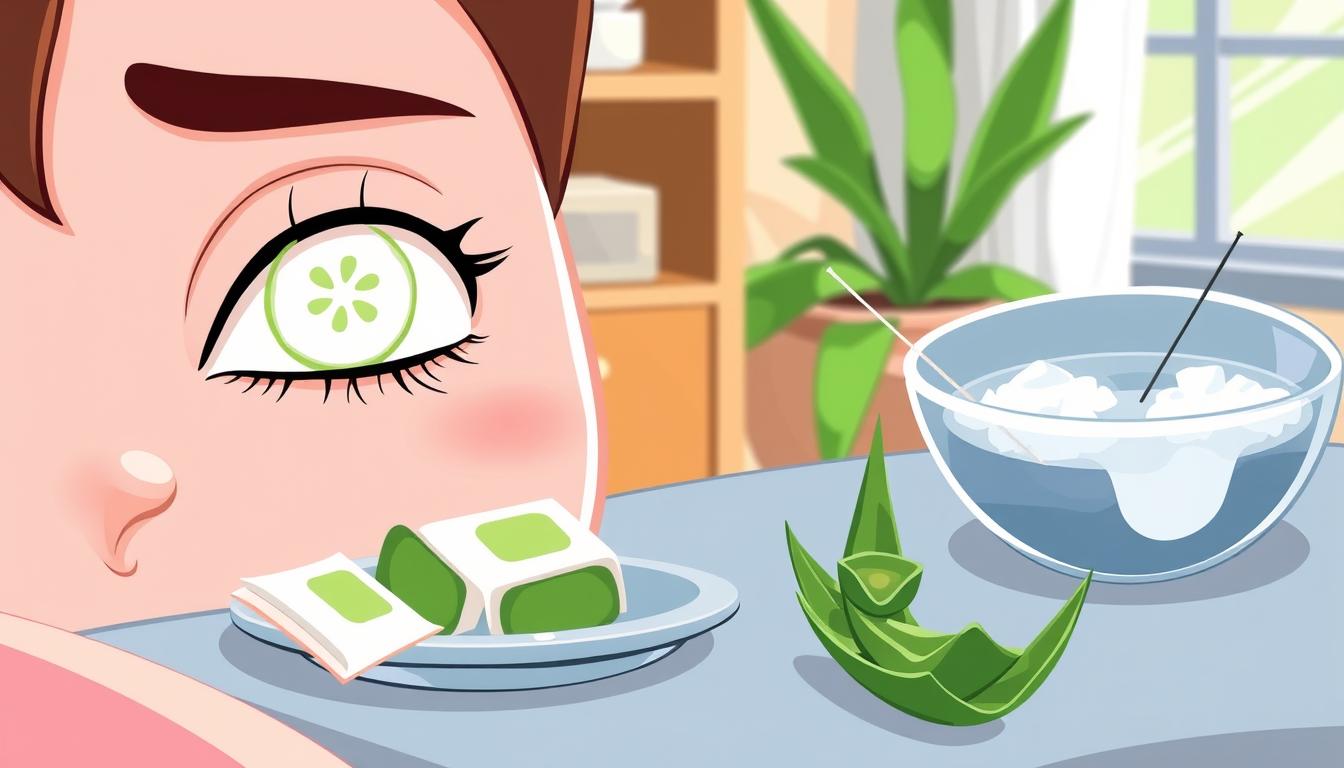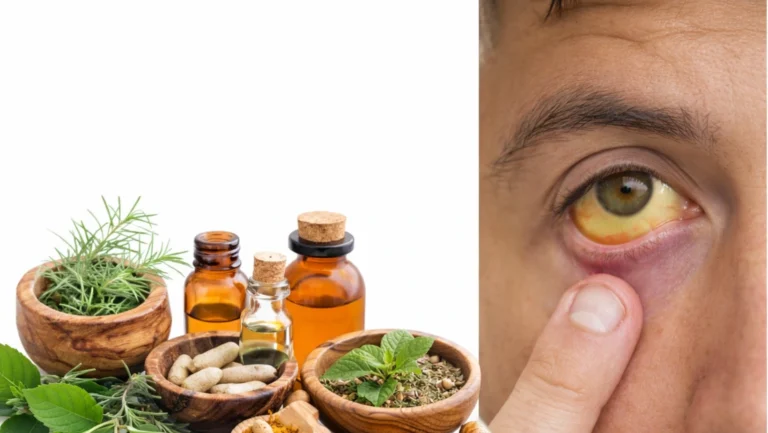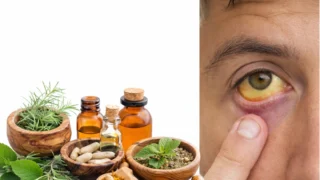Dealing with pink eye can be tough. But, there are home remedies that can help. Dr. Good Deed, an eye care expert, shares his best tips. These are natural and gentle ways to manage pink eye.
One easy fix is a warm, clean compress on your eyes. It loosens crusty discharge and eases inflammation. Just soak a soft cloth in warm water, wring it out, and gently press it on your eyes for a few minutes. Do this several times a day.
Another simple remedy is over-the-counter eye drops. Look for ones that relieve redness and irritation. Choose preservative-free artificial tears or saline solutions. They help flush out your eyes and keep them moist. But, avoid drops with medications for some types of pink eye.
Dr. Good Deed also suggests zinc supplements for a natural boost. Staying hydrated and getting enough rest help your body recover from pink eye.
Understanding Eye Discharge and Its Causes
Eye discharge is common and can have many causes. Knowing the types and causes can help you deal with eye issues. Let’s dive deeper into this topic.
What is Eye Discharge?
Eye discharge is any fluid or mucus from the eye. It can be clear or thick and pus-like. The look and feel of the discharge can tell you what’s causing it.
Common Causes of Abnormal Eye Discharge
- Viral conjunctivitis (pink eye): Usually causes clear or watery discharge with white/yellow mucus.
- Bacterial conjunctivitis: Results in thick, yellow, green, or gray discharge.
- Allergic conjunctivitis: Causes watery discharge due to allergens.
- Blepharitis: Inflammation of the eyelids leads to sticky discharge.
- Meibomian gland dysfunction: Blockage of oil glands causes more discharge.
- Styes: A red, painful bump with yellow pus discharge.
- Dry eye disease: Lack of tears leads to sticky mucus and discharge.
- Eye injuries: Trauma or foreign objects in the eye can cause discharge.
Finding the cause of your eye discharge is key to treatment. If you have ongoing or worrying discharge, see an eye doctor for help.
Viral Conjunctivitis: Symptoms and Home Care
If you have viral pink eye, you’re not alone. It’s very contagious and caused by a virus. This virus is often the same one that causes the common cold or herpes simplex virus. The discharge from your eye is usually clear and watery. It might also have white or slightly yellow mucus.
Good news: viral conjunctivitis usually gets better on its own in a week or two. While you wait, there are simple steps to help manage symptoms and stop the virus from spreading:
- Avoid touching or rubbing your eyes as much as possible to prevent the virus from spreading to the other eye or to others.
- Wash your hands frequently, especially after touching your eyes, to help stop the virus from spreading.
- Use over-the-counter artificial tears to help soothe irritation and flush out any irritants in your eyes.
Viral pink eye can be uncomfortable, but it usually goes away without needing prescription medicine. By following these simple tips, you can manage your symptoms and stop the virus from spreading to others.

Bacterial Conjunctivitis: When to Seek Medical Attention
Bacterial pink eye is a serious condition that needs quick medical help. It’s different from viral pink eye, which usually gets better on its own. Bacterial pink eye can cause serious problems if not treated right away.
Recognizing Bacterial Pink Eye
Bacterial pink eye has thick, yellow, green, or gray discharge. This discharge makes your eyelids feel stuck together in the morning. It’s more like pus than the watery discharge of viral pink eye.
Importance of Prompt Treatment
- Bacterial conjunctivitis can harm your sight if not treated quickly with antibiotic eye drops.
- It’s very important to treat it fast to avoid serious problems and stop the infection from spreading.
- If not treated, bacterial pink eye can cause serious issues like corneal ulcers or even vision loss.
If you think you have bacterial pink eye, see a doctor right away. They can diagnose it and give you the right antibiotic eye drops. This will help treat the infection and stop it from getting worse or spreading.
Allergic Conjunctivitis: Identifying and Managing Triggers
Allergic conjunctivitis is a common eye condition that can cause a lot of discomfort. It’s triggered by allergens, which are substances that make the immune system overreact. Knowing what common allergens cause eye irritation is the first step to managing it.
Common Allergens Causing Eye Irritation
- Pollen from trees, grasses, and weeds
- Animal dander from pets like cats and dogs
- Dust mites in the home
- Mold spores
- Chemicals in makeup, contact lens solutions, and eye drops
These common allergens can make the eyes release histamine. This leads to symptoms like redness, intense itching, watery discharge, and swollen eyelids. Avoiding these triggers is crucial for managing allergic pink eye and easing eye allergies.
Using over-the-counter antihistamine eye drops can help with symptoms of allergic conjunctivitis. Your eye doctor might also prescribe mast cell stabilizer or steroid eye drops to control inflammation and itching.

By understanding and managing common allergens, you can find relief from allergic pink eye and treat eye allergies effectively. If symptoms don’t get better or get worse, see an eye care professional.
Home Remedies for Conjunctivitis
Dealing with conjunctivitis, or pink eye, can be uncomfortable. But, there are home remedies that can help soothe your eyes. You can try warm compresses or use over-the-counter eye drops. These simple steps can ease the symptoms of this common eye condition.
Warm Compresses and Gentle Cleansing
Applying warm compresses to your eyes is a great remedy. The warmth can reduce inflammation and loosen discharge. Use a clean, soft cloth dampened with warm water. Hold it over your closed eyes for a few minutes, repeating several times a day.
Also, gently cleansing your eyes can help. Use a clean, damp cloth or cotton balls to wipe away any buildup. Be careful not to irritate your eyes further.
Over-the-Counter Eye Drops and Artificial Tears
Eye drops and artificial tears can soothe conjunctivitis discomfort. Look for products with hypromellose or polyethylene glycol. These help lubricate and calm your eyes. But, avoid redness-reducing drops as they can make symptoms worse.
While these remedies can help mild cases, severe infections need prescription medication. If your symptoms don’t improve or get worse, see an eye doctor.
Preventing the Spread of Conjunctivitis
To stop conjunctivitis, or pink eye, from spreading, good hygiene is key. Wash your hands often with soap and water for 20 seconds. Don’t touch your eyes, nose, or mouth, as this can spread the infection.
Hygiene Practices to Follow
Follow these tips to prevent pink eye from spreading and manage hygiene tips for conjunctivitis:
- Don’t share personal items like towels, washcloths, eye makeup, contact lenses, or eyeglasses with others.
- Wash used washcloths, pillowcases, sheets, and towels in hot water and detergent to get rid of the infection.
- If you wear contact lenses, switch to glasses until your symptoms go away to avoid reinfection or spreading.
- Avoid going to work or school until your pink eye symptoms are gone to stop spreading it to others.
- Clean the area around your eyes at least twice a day with a clean, damp cloth to lower the risk of transmission.
By sticking to these hygiene practices, you can stop pink eye from spreading. This helps keep you and those around you safe.
When to See an Eye Doctor
Knowing when to see a doctor for pink eye is key. Some mild cases can be treated at home. But, there are signs that mean you need to visit an eye doctor.
If your pink eye doesn’t get better in a few days, it’s time to see an eye specialist for conjunctivitis. Thick, colored eye discharge is a sign too. Also, if your eye hurts a lot, is very sensitive to light, or your vision changes, you need to see a doctor right away.
It’s very important to see a doctor if you have a weak immune system or are a newborn with pink eye. Newborns are very vulnerable. Untreated eye infections in them can cause serious problems.
Don’t delay if you notice any of these signs you need to see a doctor for pink eye. Getting the right treatment quickly can stop the infection from spreading. It also helps you get better faster.
Home Remedies for Conjunctivitis
If you have conjunctivitis, also known as pink eye, there are home remedies to help. These natural treatments work for mild cases. But, see an eye doctor if your symptoms get worse or don’t get better.
Warm compresses are a simple remedy. Use a clean, warm washcloth on your eye for a few minutes, several times a day. It can ease irritation and reduce swelling. Also, cleaning your eye with saline solution or sterile water can help.
Over-the-counter eye drops, like artificial tears, can lubricate and flush out your eye. This can make you feel better. But, if your conjunctivitis is from an infection, your eye doctor might need to prescribe eye drops or ointments.
Other natural remedies for effective home remedies for pink eye and natural treatments for conjunctivitis include:
- Applying a warm, damp tea bag to the affected eye
- Using a clean, cool cucumber slice on the eye
- Trying antihistamine eye drops for allergy-related conjunctivitis
While these home remedies can help, seeing a doctor is important if your symptoms don’t improve or get worse. Your eye doctor can find out what’s wrong and give you the right treatment to get better fast and safely.
Conclusion
Home remedies can help with mild conjunctivitis symptoms. But, it’s key to watch your condition closely. If eye discharge changes or symptoms get worse, see a doctor.
Good hygiene and avoiding contact with others are important. Using over-the-counter treatments can also help. Yet, for serious cases, getting medical advice is crucial.
For treating pink eye at home, use warm compresses and cold compresses to ease itching and swelling. Stay away from pollen and dust to avoid making allergic conjunctivitis worse. By following these steps, you can manage the condition and stop it from spreading.
Remember, home remedies can offer relief. But, sometimes, you need to see a doctor. This is true if pink eye lasts more than a week or if symptoms are concerning. With self-care and professional help, you can get your eyes healthy again.
FAQ
What is eye discharge?
Eye discharge, or “sleep” in your eyes, is made of mucus, oil, and skin cells. It builds up in the corner of your eye while you sleep. It can be wet and sticky or dry and crusty, depending on how much liquid has dried.
What are the common causes of abnormal eye discharge?
Many things can cause abnormal eye discharge. This includes viral conjunctivitis (pink eye), bacterial conjunctivitis, and allergic conjunctivitis. Other causes are blepharitis, meibomian gland dysfunction, styes, dry eyes, and eye injuries.
What are the symptoms of viral conjunctivitis?
Viral conjunctivitis makes your eye discharge clear and watery. It might also have white or slightly yellow mucus. To care for it at home, avoid touching or rubbing your eyes. Wash your hands often and use artificial tears to soothe your eyes.
How can I recognize bacterial conjunctivitis?
Bacterial conjunctivitis makes your eye discharge thick and more like pus. It’s usually yellow, green, or gray. This discharge can make your eyelids feel stuck together when you wake up.
What triggers allergic conjunctivitis?
Allergic conjunctivitis is caused by allergens like pollen and dust. It can also be triggered by makeup, contact lens solutions, and eye drops. The discharge from allergic conjunctivitis is usually watery.
What home remedies can help provide relief for conjunctivitis?
Home remedies include using warm compresses on your eyes. Gently clean your eyes to remove discharge. Also, use over-the-counter eye drops and artificial tears to soothe and lubricate your eyes.
How can I prevent the spread of conjunctivitis?
To stop conjunctivitis from spreading, practice good hygiene. Don’t touch your eyes, wash your hands often, and disinfect surfaces. Also, avoid sharing personal items like towels and makeup.
When should I see an eye doctor for conjunctivitis?
See an eye doctor if your symptoms don’t get better in a few days. If your discharge is thick and colored, or if you have severe symptoms like pain or vision changes. Quick medical treatment is key to avoid complications and ensure healing.
















Leave a Comment